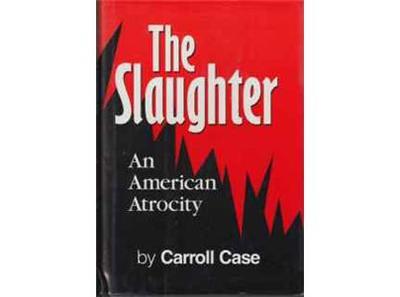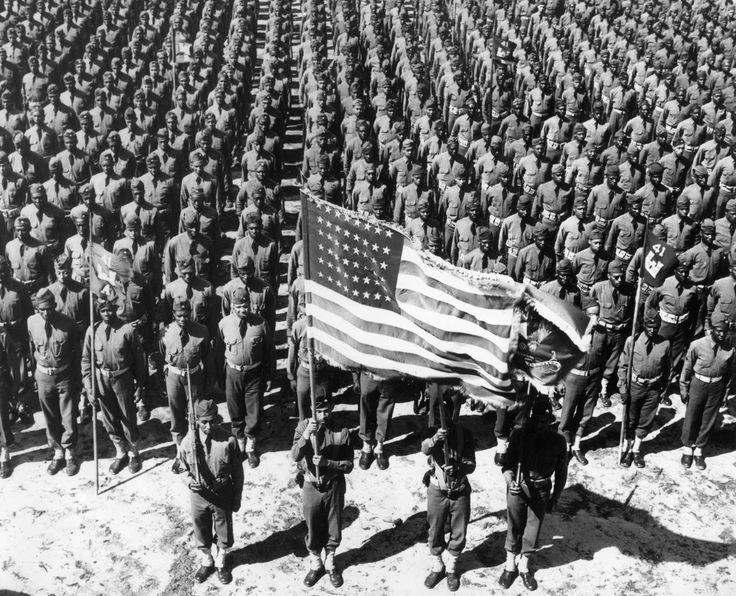
UNTOLD MISSISSIPPI MASSACRE

Controversy surrounds what some say is an untold Mississippi Massacre that the United States Army hid and is still hiding from American history. Does such a story exist? Supposedly, the secret slaughter of unarmed black soldiers happened during World World II, and was never disclosed.
CAMP VAN DORN – WORLD WAR II
During World War II, Camp Van Dorn had a regiment called The 364th consisting of Black soldiers only. At that time segregation was the norm in the military. Black soldiers could die for their country, but they could not eat in Army mess halls in the country. The Camp was located in Centreville, Mississippi. Many soldiers in the 364th Regiment did not grow-up in the south and had no patience with the Jim Crow laws that ruled it. Thus, constant friction occurred between the soldiers and the residents of the town. To some, the soldiers were nothing but “trouble-makers.”

The Untold Mississippi Massacre

According to the book: The Slaughter: An American Atrocity, 1200 black soldiers were massacred in 1943. Carrol Case, a white banker, artist and writer, is the author of this book and tells the story.
THE UNTOLD MISSISSIPPI MASSACRE STORY GOES ON . . .

Reportedly in 1985, a maintenance man named William Martzell working in the same bank as Author Carroll Case, confessed to participation in the massacre at Van Dorn. He recounts: “We had the whole area sealed-off. It was like shooting fish in a barrel. We opened fire on everything that moved. (We) shot into barracks, shot them out of trees where some were climbing and trying to hide . . .” According to Martzell, prior to the butchering, the soldiers had broken into a place where military guns were stored, but unbeknown to them, the pins had been removed. So . . . even though the soldiers were equipped to defend themselves, they had no weapons that were operable.
The Aftermath of Camp Dorn Slaughter

William Martzell also maintained the Army had planned the massacre because it was fed up with those “trouble-making soldiers” of the 364th. Also, his story is the Army covered up the murders by telling families the soldiers were killed in combat.
Carrol Case’s book indicates the bodies of 1227 black soldiers were loaded onto rail cars and buried on the outskirts of the Camp in trenches. Later, the grave sites were covered with a 12-acre lake. Is this another American untold story?
Investigation of Untold Mississippi Massacre
In 1999, at the request of the NAACP, the Army spent 16 months trying to disprove a massacre took place. With Janet Reno as Attorney General, it concluded, “There is no documentary evidence whatsoever that any unusual inexplicable loss of personnel occurred.” One writer says “the report was riddled with errors” and inconsistencies.
A former black soldier of the 364th Regiment named Malcolm LaPlace, said in a documentary that his signature was forged on a key document. Further, he accused the Army of covering up deaths of fellow soldiers by listing them as AWOL (Away Without Leave) in regiment journals. And . . . he adds, he made changes at the request of Colonel John F. Goodman, who is now deceased.
(Youtube: The Negro Soldier, 1944).
SKEPTICISM OF NAACP
Even though maintenance man William Martzell’s record does not reveal he was stationed at Camp Van Dorn in 1943, one wonders about the accuracy of the Reno/Army Report. The question remains, “Was his record expunged from files?” Presently, the NAACP has not agreed “the massacre did not occur.”
DOES AMERICA HIDE ITS DARK PAST?
The answer to the above question is “Yes.” We have only to look at The Tulsa Massacre. It was hidden for 100 years. Then there is: Rosewood Massacre, Atlanta Race Riot, Thibodaus Massacre, New Orleans Massacre of 1866, New York City Draft Riots, The Red Summer of 1919, Opelousos Massacre, the Arkansas Elaine Massacre and the Wilmington Insurection of 1988. These are just some of the horrors that paint the history of America with African American red blood.
Can Blacks believe the Janet Reno and 1999 Army investigation? Many will answer… No! As we face the systemic racism that overtly plagues our nation today, let us honestly look at our past and make needed changes. Unless we do so, we will make our dark history . . . a dark reality today.
